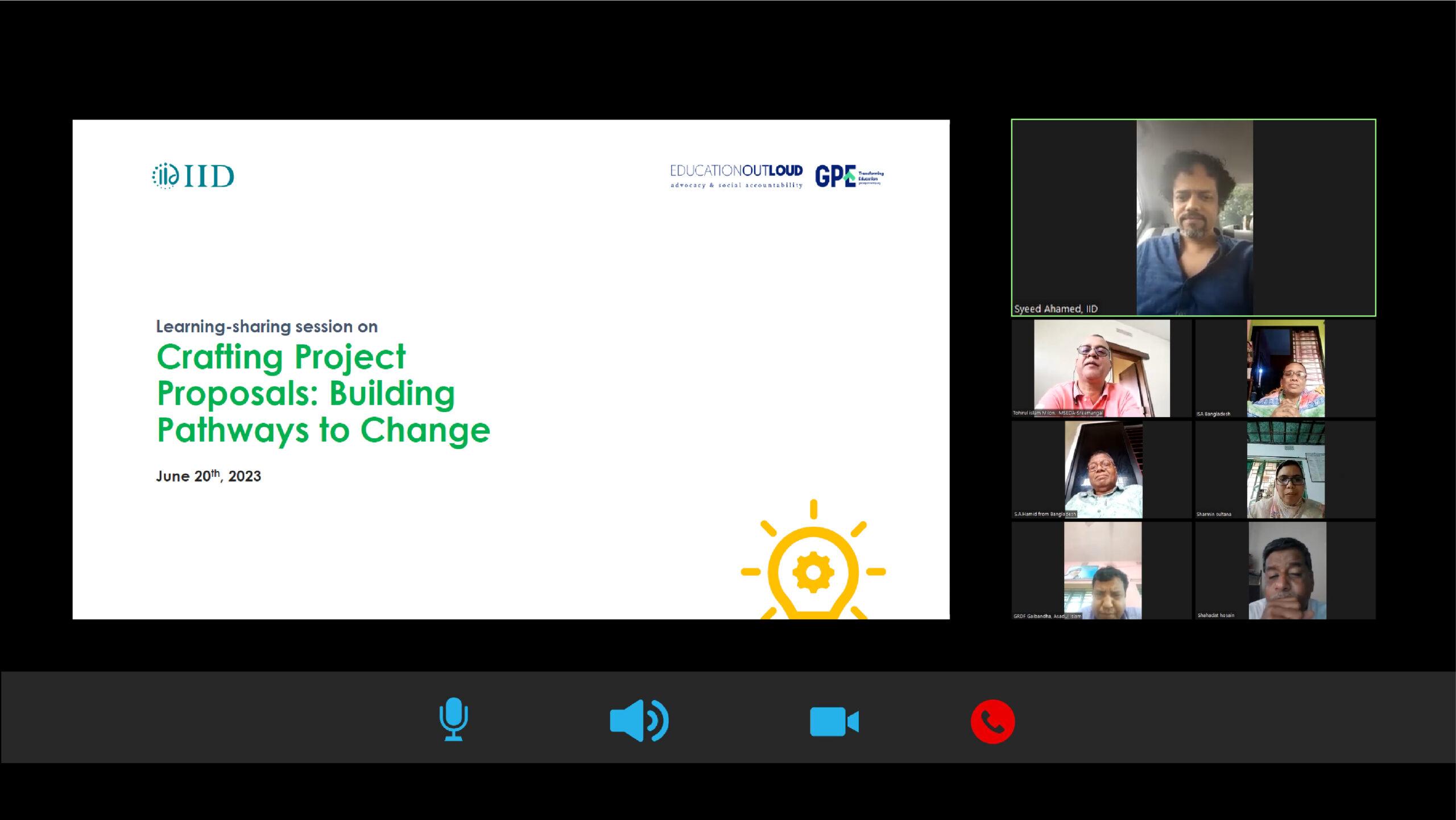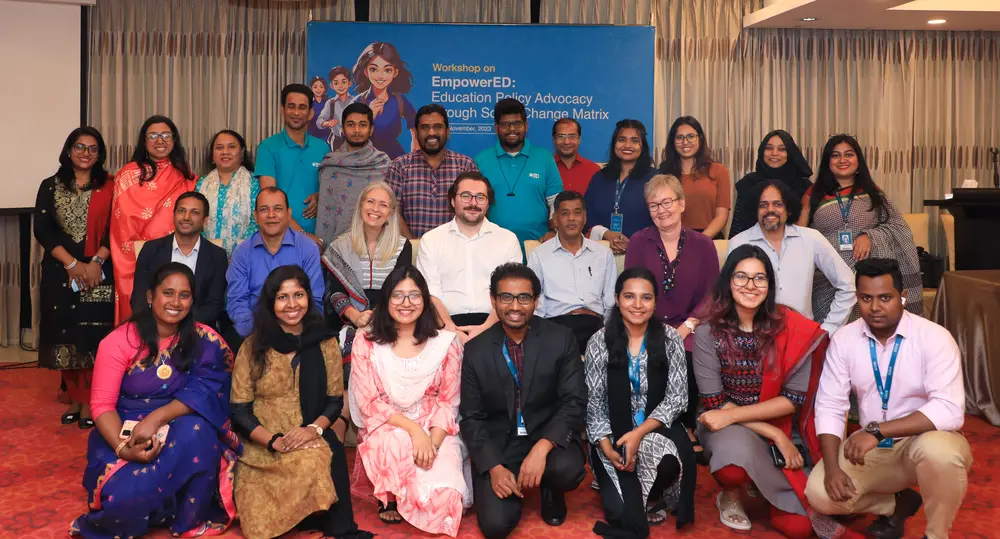“Artists with disabilities deserve to have their talents showcased and celebrated, allowing them to contribute to the cultural landscape,” remarked Jenny Sealey, one of the panelists at the first policy discussion on “Representation in Disability Art” during the International Disability Art Festival 2024. The discussion highlighted the urgent need for inclusivity and representation of individuals with disabilities in various art forms while also underscoring the significance of disability art in promoting societal change.
The two-day festival, which took place on April 26–27, 2024, brought together a vibrant array of artistic talent and discourse. It showcased ten theatrical performances by artists with disabilities from Bangladesh and abroad, alongside three panel discussions and an art exhibition. The event was co-hosted by the British Council, Dhaka Theatre, and IID, with support from the Parliamentary Caucus on Justice, the Ministry of Cultural Affairs, and Bangladesh Shilpakala Academy.
Moderated by Bhashkar Bhattacharjee, National Consultant for Access to Information (A2i), the first policy discussion on “Representation in Disability Art” brought together prominent voices advocating for greater visibility and recognition of disabled artists.
During the policy discussion, Valerie Ann Taylor, founder and coordinator, Centre for the Rehabilitation of the Paralysed (CRP), expressed her excitement about the festival’s potential to bring together people with diverse backgrounds, emphasizing its effort to promote inclusivity by incorporating disabled artists into mainstream art. She highlighted how artistic endeavors provide individuals with disabilities an opportunity for personal growth and social inclusion.
Jenny Sealey, theatre director, Graeae Theatre Company, shared her journey of overcoming personal challenges after losing her hearing at a young age. Despite adversity, she found solace and empowerment in ballet. She underscored the transformative power of theater to cultivate empathy and challenge societal norms, advocating for greater visibility for artists with disabilities across various art forms. She applauded Bangladesh’s progress in advancing disability arts, noting that a theater production featuring 20 artists with disabilities demonstrated the country’s strides in inclusion.
Mahjabeen Khaled, General Secretary, Parliamentary Caucus on Justice, discussed the inefficacy of government subsidies meant for persons with disabilities and proposed utilizing cultural buildings across the country to help individuals with disabilities gain skills and employment. She also highlighted the importance of inclusive policymaking and the need for more accessible parliamentary representation. Khaled lamented the limited representation of marginalized communities, especially individuals with disabilities, in Bangladeshi art and called for greater recognition and visibility.
Nasiruddin Yousuff Bacchu, Director, Dhaka Theatre, passionately advocated for integrating disability arts into mainstream theater in Bangladesh. He recalled his transformative experience at the Globe Theatre in the UK, which led to his collaboration with the British Council on ‘A Different Romeo and Juliet,’ a landmark production that set the stage for inclusive art in the country. This success gave birth to the DARE Project, which aims to empower individuals through disability arts and create a bridge to mainstream society. He also discussed Shundaram, an initiative under DARE, focusing on building the capacity of disabled artists across all eight divisional cities of Bangladesh. Bacchu reiterated his commitment to empowering these artists and ensuring they have the support needed to fight for inclusion.
The panelists collectively emphasized the need for proactive policies and collaborative efforts to amplify the voices of individuals with disabilities in art. Their discussions highlighted the festival as a significant step toward creating a more inclusive cultural landscape, ensuring that the transformative potential of disability art can help shape a more equitable and compassionate society.




